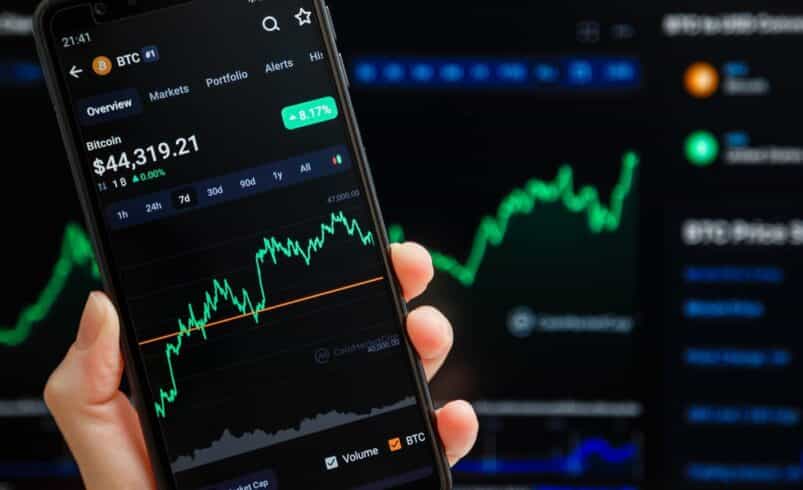Spot Bitcoin And Futures Bitcoin ETFs: All You Need To Know

Understanding Exchange-Traded Funds (ETFs)
The emergence of Exchange-Traded Funds (ETFs) has revolutionized how individuals and entities engage with financial markets. These versatile instruments provide a gateway for investors to tap into the performance of specific assets without the need for direct ownership.
Among the multiple ETF offerings, Bitcoin ETFs have garnered significant attention. This guide explores the fundamental distinctions between spot and futures Bitcoin ETFs, including their unique attributes and broader implications for investors and the cryptocurrency market at large.
Traded primarily on major stock exchanges such as the London Stock Exchange (LSE) or the New York Stock Exchange (NYSE), ETFs are facilitated by stockbrokers and online brokerage platforms, making them accessible to a wide range of investors.
Introducing Bitcoin ETFs
The introduction of Bitcoin ETFs marks a pivotal moment in the evolution of cryptocurrency investment. Many potential investors find the process of acquiring, securing, and transacting digital currencies like Bitcoin to be daunting.
Hence, Bitcoin ETFs offer a simplified avenue for individuals to engage with Bitcoin’s price movements, tapping into its potential for growth without needing to navigate the complexities of digital wallets, private keys, and exchanges.
Distinction Between Bitcoin Spot And Futures ETFs
While both spot Bitcoin ETFs and futures Bitcoin ETFs are vehicles for investors to participate in Bitcoin’s price dynamics, they operate on fundamentally different principles.
Spot Bitcoin ETFs
When an investor opts for a Spot Bitcoin ETF, they gain ownership of a share of the ETF and a proportional share of the actual Bitcoin held in custody by the ETF provider. Thus, the ETF provider actively purchases Bitcoin from the open market to match the value of issued shares.
Conversely, when an investor decides to liquidate their position, the ETF provider sells the corresponding amount of Bitcoin from their reserves. This sale process often occurs during the regular rebalancing of the ETF.
One of the pivotal advantages of a Spot Bitcoin ETF lies in its immediate and transparent exposure to the price movements of the underlying cryptocurrency. Since the ETF is intrinsically linked to actual Bitcoin holdings, its value directly mirrors the current market price of Bitcoin.
This direct correlation offers investors a reliable means of tracking Bitcoin’s price trajectory without being involved in the mechanics of the cryptocurrency market.
Bitcoin Futures ETFs
In contrast, Bitcoin futures ETFs do not involve directly possessing Bitcoin. Instead, they are investments in Bitcoin futures contracts.
These contracts serve as agreements between parties to buy or sell Bitcoin at predetermined prices on specific dates in the future. Consequently, the valuation of a futures ETF depends on the prevailing market price of Bitcoin and the anticipation of its future value.
Thus, factors influencing market sentiments, projections, and future expectations regarding Bitcoin’s price play a pivotal role in determining the value of these ETFs.
As a result, the price of a Bitcoin futures ETF can deviate from the actual spot price of Bitcoin, making it distinct from Spot Bitcoin ETFs. Unlike their spot counterparts, futures ETFs allow shorting Bitcoin, offering strategic opportunities for those willing to take the risk.
Thus, investors can profit from declining BTC’s price. Furthermore, futures ETFs cater to a broader spectrum of market participants, including those who adopt a more conservative approach and those inclined towards a more speculative stance.
Advantages Of Spot Bitcoin ETFs
Spot Bitcoin ETFs offer a multitude of advantages over their futures counterparts. These benefits position them as a highly appealing investment option for a wide array of investors:
- Simplified Structure: With Spot ETFs, there are zero complexities such as expiration dates, margin calls, and leverage, making it a more straightforward investment experience.
- Direct Price Tracking: Since the cryptocurrency directly backs Spot Bitcoin ETFs, their prices closely mirror the actual spot price of Bitcoin. This contrasts futures, which may deviate due to factors like backwardation.
- Reduced Counterparty Risk: Futures contracts necessitate that parties fulfill their obligations, occasionally resulting in refusals or failures to meet agreements.
- Enhanced Liquidity: Spot Bitcoin ETFs mandate brokers to procure Bitcoin for custody directly. This process is anticipated to enhance the overall liquidity of the Bitcoin spot market.
While both ETFs have their unique benefits, they also come with their unique risks. Hence, potential investors must assess the risks and benefits to make a suitable decision. However, it is worth noting that Spot BTC ETFs are yet to be available to US residents.
TradeZoneCrypto.com offers high-quality content catering to crypto enthusiasts. We’re dedicated to providing a platform for crypto companies to enhance their brand exposure. Please note that cryptocurrencies and digital tokens are highly volatile. It’s essential to conduct thorough research before making any investment decisions. Some of the posts on this website may be guest posts or paid posts not authored by our team, and their views do not necessarily represent the views of this website. TradeZoneCrypto.com is not responsible for the content, accuracy, quality, advertising, products, or any other content posted on the site.








